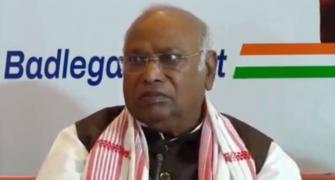This announcement by Railway Minister Lalu Prasad Yadav at the conference on "Public private partnership in Indian Railways" organised jointly by FICCI and the Ministry of Railways recently has set the direction for all the players in industry connected to the railway system, a top source in the sector told Business Standard.
The day-long conference deliberated on new formats for PPP in Indian Railways, like PPP for rolling stock, managing and building freight corridors, coach and freight terminals, and modernisation of Indian Railways.
According to the railway minister, "We would want close coordination and liaison with the private sector for which the Advisors' Group, comprising representatives of apex chambers and retired senior members of the Railway Board, will be consulted to take PPP projects forward."
The minister said he was against "blanket privatisation of the railway system but the private sector was being encouraged to participate with the railways in the development of its non-core activities."
According to Railway Board Chairman J P Batra, railways were looking for an investment of over Rs 3,00,000 crore (Rs 3000 billion) by 2015 in a host of activities such as port connectivity, gauge conversion, dedicated freight corridors along with upgradation of feeder routes, asset renewal and augmentation of high density routes and augmentation of manufacturing of rolling stock.
Railways would continue to prioritise and take up high-priority short-gestation projects from internally generated resources, and would also like to execute remunerative projects through the PPP route, Batra added.
PPPs required a transparent policy framework with clearly outlined rights and duties of the concerned parties, and thededicated PPP Cell in the ministry was working on this, Batra said.
Apart from involving the private sector in the operation of container trains, the dedicated freight corridor project, and upgradation of railway stations, the railways had set up the rail development authority (RDA) to put 43,000 hectares of vacant railway land to proper economic use.
Railways is considering a PPP model for agricultural railside warehouses by using surplus land.
According to Batra, this would offer an opportunity to the private sector to open agriculture collection centres-cum-retail outlets at railway stations and help generate parcel and container traffic for the railways while providing market access to farm sector producers.
FICCI President Saroj Kumar Poddar, praising Yadav for the turnaround of Indian Railways, pointed out that thoperating ratio had been brought down to 83.7 per cent while internal resource generation had jumped over fivefold in 2005-06 under him.
This was matched by acceleration in growth of freight traffic through better leverage of existing assets and sharp reduction in unit costs, helping railways reverse the loss in market share it had suffered at the hands of road transport, Poddar stated.
Poddar indicated that Industry welcomed the railways investment plan for the 11th Five Year Plan of Rs 350,000 crore (Rs 3500 billion), which was expected to increase GDP by Rs 1400,000 crore (Rs 14000 billion) or $300 billion over the next five years.
Poddar felt the private sector should be allowed to design rail wagons on an exclusive basis, subject to approval of the design by the railways.
The private sector would be willing to invest, once the railways could assure sufficient orders over a five-year period to allow for reasonable returns on cost plus investment, Poddar added.
Industry would however like a change in the tendering system as it currently favoured only the L1 (lowest cost) bidder and was prone to delay. Sources in industry claimed that reform of the L1 system would weed out frivolous bidders who quoted artificially low prices.








